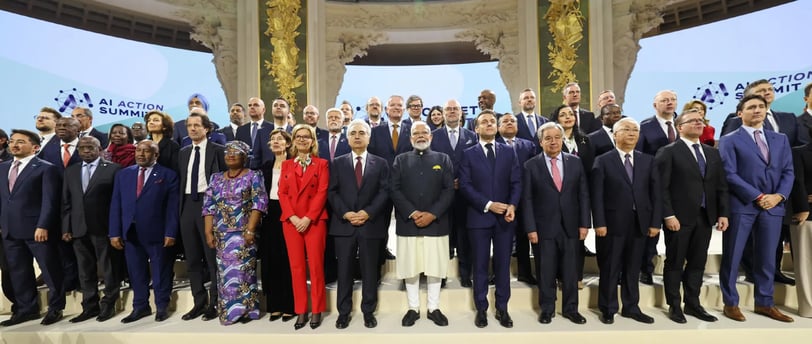The UK and US Reject AI Declaration: A Strategic Move or a Missed Opportunity?
The UK and US have refused to sign an international AI declaration aimed at promoting ethical and transparent AI development. While other nations push for stricter regulations, the two countries cite national security and economic concerns. Is this a calculated move to maintain AI dominance, or a missed opportunity for global collaboration? This blog breaks down the decision, its implications, and the broader geopolitical stakes.


Another global AI summit, another rift in international policy. This time, the UK and the US have chosen not to sign an AI declaration endorsed by 60 other nations, leaving a big question mark hanging over their decision. Is this about protecting national interests, or is it a misstep that puts them out of sync with the rest of the world?
At the Paris AI Action Summit, countries like China, France, and India committed to an "open, inclusive, and ethical" approach to AI. The agreement aims to make AI more accessible, transparent, and sustainable—touching on concerns that AI's energy consumption could soon rival that of small nations.
But the UK and US said, "No, thanks."
What’s the Real Issue?
The UK government says the declaration lacked clarity on global governance and national security. In short, they’re worried about control. Meanwhile, in the US, Vice President JD Vance didn’t mince words—he warned that too much regulation could "kill a transformative industry just as it's taking off." The Trump administration, he stressed, won’t let that happen.
That puts them at odds with European leaders like French President Emmanuel Macron, who insists AI needs rules to "move forward responsibly." The European Commission echoed the same sentiment, pushing for a balance between innovation and oversight.
A Shift in Stance?
This move raises eyebrows, especially since the UK once positioned itself as a leader in AI safety. Back in November 2023, then-Prime Minister Rishi Sunak hosted the world's first AI Safety Summit. Now, by refusing to sign, critics say the UK is walking back on its own commitments.
Andrew Dudfield, head of AI at Full Fact, argues that the government is risking its credibility. But UKAI, a trade body for AI businesses, sees things differently. They believe a rigid international agreement could stifle industry growth and that the UK made the right call.
Beyond AI: The Geopolitical Angle
This decision isn’t happening in a vacuum. The US and Europe are already butting heads over trade, with Trump slapping tariffs on steel and aluminum imports. The UK, caught in the middle, is trying to keep good relations with both sides. Could their AI stance be part of that balancing act?
So, What Now?
AI is moving fast. Some say regulation is necessary to prevent chaos, while others fear that too many rules will smother innovation. The UK and US are betting on their own path—but at what cost?
The world is watching.
Source: BBC News
Reflections
Thoughts on life shared over morning coffee.
Contact us
subscribe to morning coffee thoughts today!
© 2024. All rights reserved.
